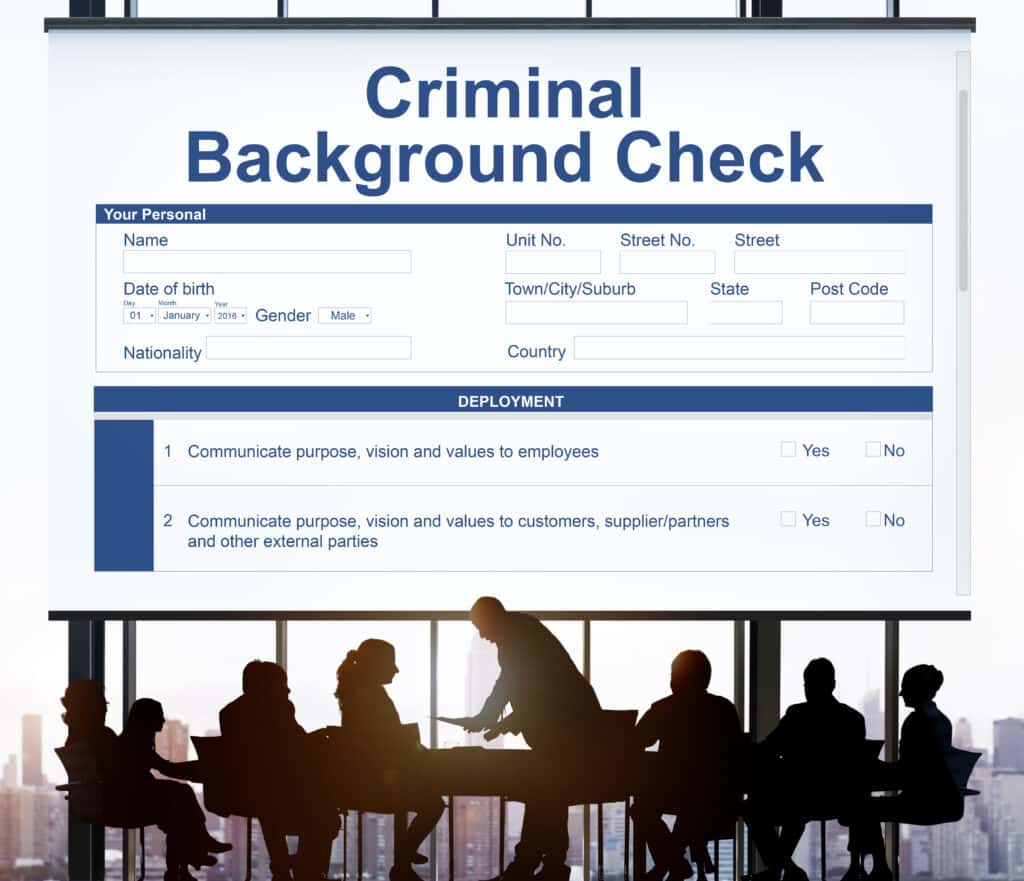
When it comes to hiring new employees, conducting background checks is a crucial step in the process. Background checks help employers verify the information provided by potential employees and ensure that they are making informed hiring decisions. However, each state has its own laws and regulations regarding background checks, and Florida is no exception. In this article, we will explore the ins and outs of background checks in Florida and what employers need to know.
What is a Background Check?
A background check is a process of investigating a person’s criminal, commercial, and financial records. It is typically conducted by employers to verify the information provided by potential employees and ensure that they are suitable for the job. Background checks can include criminal history, credit history, employment history, education verification, and more.
Why Are Background Checks Important?
Background checks are essential for employers to make informed hiring decisions. They help employers identify any red flags or discrepancies in a candidate’s background that may affect their ability to perform the job or pose a risk to the company. Background checks also help protect the company from potential lawsuits by ensuring that they are not hiring individuals with a history of violence or criminal activity.
Background Checks in Florida
In the state of Florida, there are various laws and regulations that employers are obligated to follow when they undertake background checks on potential job candidates. The purpose behind implementing these specific laws is to ensure that the rights and interests of the job applicants are protected, all while striving to prevent any kind of discriminatory behavior that may stem from an individual’s background information. It cannot be overstated how important it is for employers to strictly adhere to these regulations as it guarantees that the evaluation of prospective employees remains fair and unbiased. By doing so, it contributes to the creation of an employment environment within the state that promotes inclusivity and equality for all individuals involved.
What Employers Need to Know
In the state of Florida, employers have an obligation to adhere to the Fair Credit Reporting Act (FCRA) to ensure compliance when performing background checks on potential candidates. This crucial federal legislation is in place to effectively govern and supervise the process of collecting, disseminating, and utilizing consumer information, encompassing not only credit reports but also criminal records. Moreover, it is equally imperative for employers to uphold the provisions set forth by the Florida Civil Rights Act, which unequivocally prohibits any form of discriminatory practices based on various protected characteristics such as race, color, religion, sex, national origin, age, disability, or marital status. By abiding by these legal frameworks, employers can ensure a fair and unbiased hiring process that upholds the principles of equality and non-discrimination.
What Can Be Included in a Background Check?
In the state of Florida, employers have the authority to carry out comprehensive background checks on potential employees, encompassing various aspects such as criminal history, credit history, employment history, education verification, and an array of other relevant information. Nevertheless, in order to initiate such a check, employers are required by law to obtain the explicit written consent of the job applicant. Not only that, but they are also obliged to furnish the applicant with a physical copy of the resultant report and additionally provide them with a concise summary outlining their rights according to the Fair Credit Reporting Act (FCRA).
What Cannot Be Included in a Background Check?
In the state of Florida, when conducting a background check, there are certain restrictions on the inclusion of specific information that may be deemed irrelevant or outdated. To elaborate further, it is important to note that any bankruptcies that occurred more than a decade ago cannot be taken into consideration during this process. Similarly, civil suits and civil judgments that transpired over seven years ago are no longer legally admissible for the purpose of background checks. Furthermore, any arrest records, regardless of severity, which date back more than seven years, cannot be utilized in these investigations. Moreover, paid tax liens that have surpassed the seven-year mark are also off-limits when compiling a background report. Lastly, it is crucial to acknowledge that any accounts placed for collection prior to the seven-year timeframe are not to be included in such screenings. Consequently, any additional negative information beyond this seven-year threshold is similarly excluded in order to ensure fairness and accuracy in assessing an individual’s background.
Jobs That Don’t Require Background Checks in Florida

While most employers in Florida conduct background checks, there are some jobs that do not require them. These include:
- Jobs in the healthcare industry that do not involve direct patient care
- Jobs in the education industry that do not involve direct contact with students
- Jobs in the financial industry that do not involve handling money or sensitive financial information
- Jobs in the transportation industry that do not involve driving or operating vehicles
- Jobs in the hospitality industry that do not involve handling cash or sensitive information
How to Conduct a Background Check in Florida
To conduct a background check in Florida, employers must follow these steps:
- Obtain written consent from the job applicant.
- Provide the applicant with a copy of the report and a summary of their rights under the FCRA.
- Use a reputable background check company that complies with federal and state laws.
- Verify the information provided by the applicant, including employment history, education, and references.
- Check for any criminal history in the county where the applicant currently resides and any other counties where they have lived in the past seven years.
- Check for any civil judgments or bankruptcies in the past seven years.
- Check for any sex offender registry records.
- Check for any driving records if the job requires driving or operating vehicles.
- Review the results of the background check and make an informed hiring decision.
How Long Does a Background Check Take in Florida?
The time required to conduct a background check in Florida can vary significantly, contingent upon several factors such as the specific type of check being conducted and the background check company chosen for the task. However, it is typically observed that most background checks in this state can be successfully completed within a period ranging from two to five business days, allowing for an adequate assessment of the individual’s history and relevant information.
How Much Does a Background Check Cost in Florida?
In the state of Florida, the cost of a background check tends to differ significantly based on multiple factors, namely the specific type of background check one requires and the particular background check company they choose to engage with. It is important to note that due to this inherent variation, it becomes quite challenging to establish a precise figure for the cost of a background check in the region. Nevertheless, on an average basis, individuals seeking background checks in Florida can anticipate a range of expenses spanning from around $20 to approximately $100 per person, providing a general guideline for budgetary considerations in this domain.
What Happens If a Background Check Comes Back with Negative Results?
If a background check comes back with negative results, it is up to the employer to decide whether or not to hire the applicant. However, employers must follow the guidelines set by the FCRA and the Florida Civil Rights Act to avoid any potential lawsuits.
If an employer decides not to hire an applicant based on the results of a background check, they must provide the applicant with a copy of the report and a summary of their rights under the FCRA. They must also give the applicant the opportunity to dispute any inaccurate information in the report.
Conclusion
Conducting thorough background checks is an absolutely crucial and indispensable step that employers in the state of Florida must undertake as part of their hiring process. By diligently carrying out this significant process, employers are able to ensure that they make well-informed decisions when it comes to hiring potential candidates, thereby safeguarding their company from any potential risks and liabilities that could arise from the hiring of unsuitable individuals. It is of paramount importance for employers to adhere to the laws and regulations that have been put in place by the Fair Credit Reporting Act (FCRA) and the Florida Civil Rights Act, as this ensures that the background checks are conducted in a manner that is both fair and legally compliant. With their deep understanding and extensive knowledge of the intricate laws that govern the state of Florida, The Screening Source is exceptionally well-equipped to assist employers in effectively running these crucial background checks.
